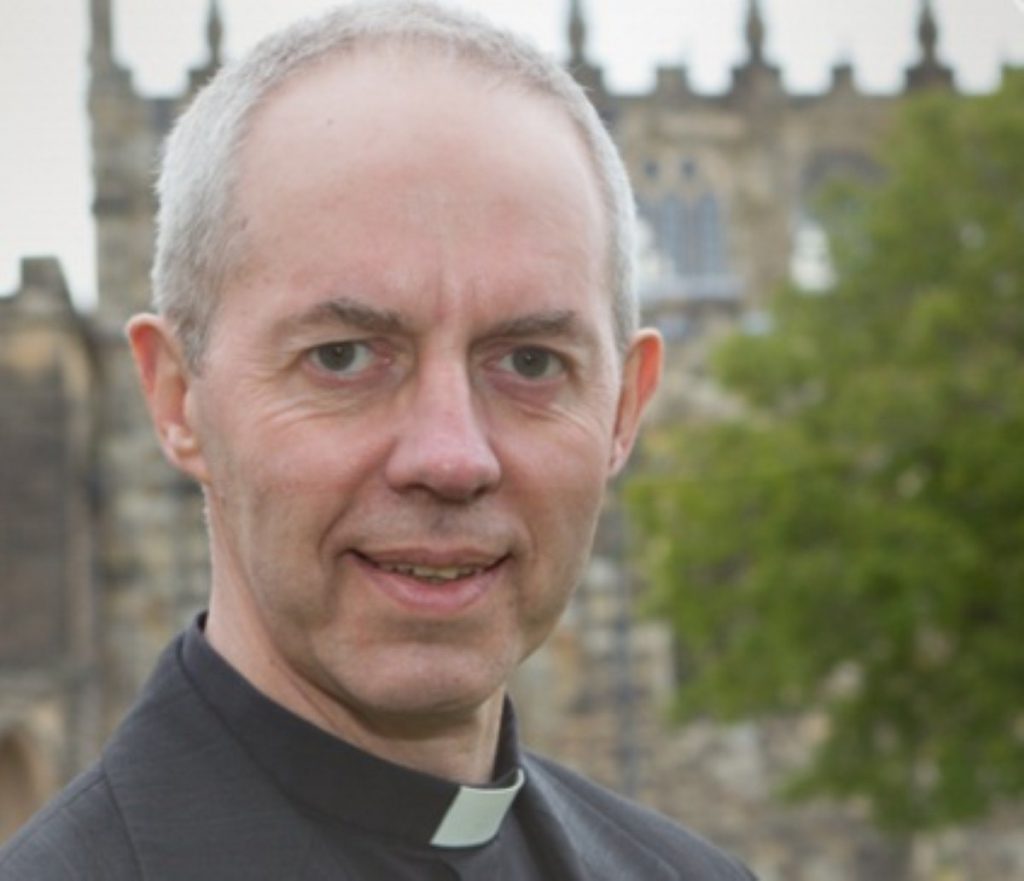Welby vs Wonga: We’ll push you out of business
By Phoebe Cooke
The Church of England will "compete" major payday lending companies out of business by creating its own credit union, the Archbishop of Canterbury has declared.
The former financier, now head of the Church, revealed in a magazine interview he and Wonga head Errol Damelin had spoken as one businessman to another in a "good conversation", with the Wonga head responding diplomatically to Welby's intentions by saying he was "all for better consumer choice".
The revelations come just days after the very first UK ban on payday loan advertising was initiated in Plymouth, which has prohibited all such advertising from bus shelters, billboards and publicly available computers in the city.
"I said to him quite bluntly that 'we're not in the business of trying to legislate you out of existence; we're trying to compete you out of existence'," the Archbishop told Total Politics magazine.
The discussion follows Welby's launching of a new credit union aimed at clergy and clerk staff earlier this month.
Credit unions charge members low rates of interest to borrow money, in contrast to payday loan companies, whose high interest rates can push its borrowers into spiralling debt.
"We're putting our money where our mouth is," the Archbishop said on starting a Church of England staff credit union.
In the interview Welby explained that making lending more accessible would be a slow process, with investment in credit unions of £35 million coming in over the next ten years from the Bank for International Settlements (BIS) which will help offer an alternative to payday lenders.
The £2 billion payday loan industry was accused by its regulator of widespread irresponsible lending earlier this year.
At an industry summit in Whitehall last month lenders were told they could face tighter controls, including limits on the number of loans taken out and a cap on the total cost of credit.
"We've got to have credit unions that are both engaged in their communities and much more professional, and the third thing is people have got to know about them. It's a decade long process," the Archbishop added.
Children's Society boss Matthew Reed said the Archbishop "should be applauded for taking such a bold stance to tackle the scourge of high cost payday loan companies".
"Many charge eye-watering rates of interest and drag people into a vicious spiral of debt and despair.
“It’s terrifying to think that each month, one million families turn to high-cost, short-term credit, like payday loans each month and 400,000 are using them for essentials, such as putting food on the table or preventing the gas and electricity from being cut off," Reed added.
He said it was vital that recent changes to the Social Fund do not push families into the clutches of "legal loan sharks… as they have nowhere to turn to in their hour of need".
Reed added: "It's vital that the money low-income families have goes to supporting their children, rather than paying off extortionate interest rates.





-01.png)